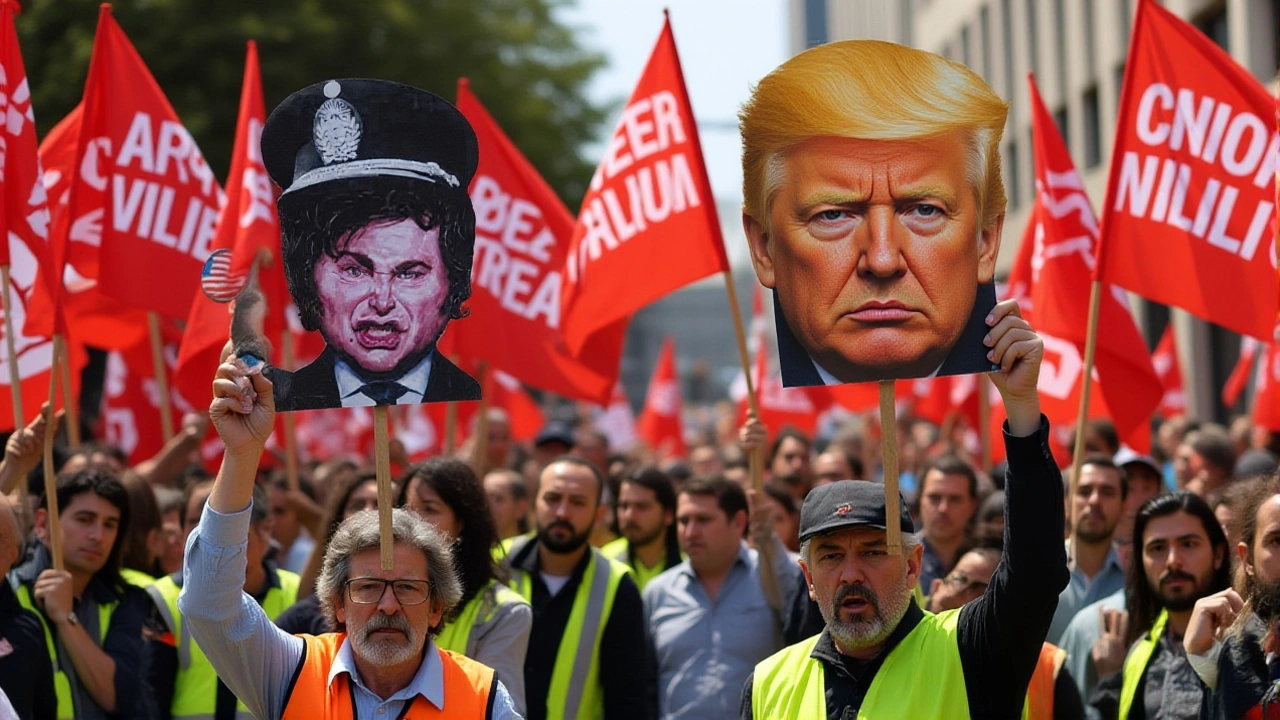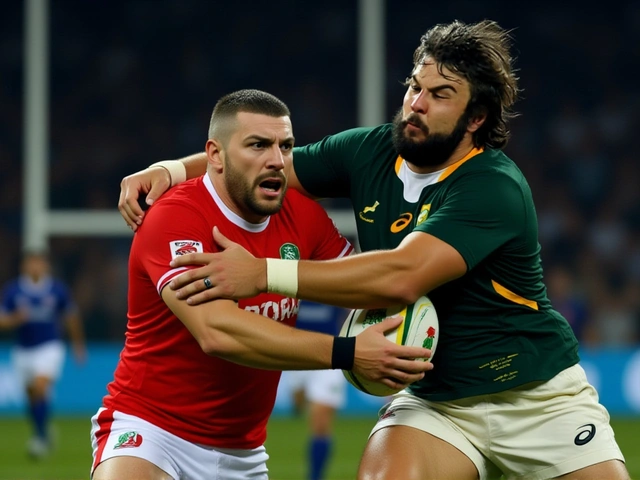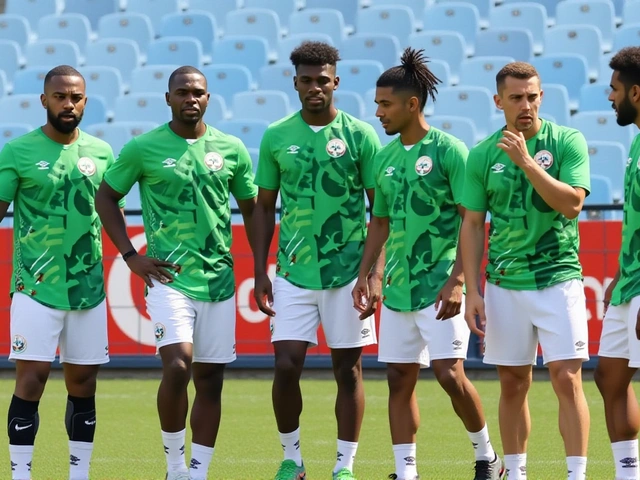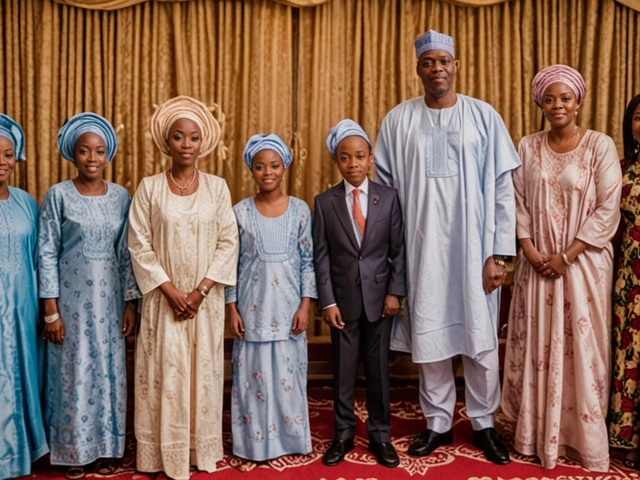When Javier Milei announced he wouldn’t attend the G20 Leaders' SummitJohannesburg, it wasn’t just a no-show — it was a signal. Argentina’s president, known for his fiery rhetoric and ideological zigzags, has now openly aligned with Donald Trump in a diplomatic snub that rattled global economic forums. The decision, confirmed by Milei’s spokesperson to Agence France-Presse on November 13, 2025, means the world’s 20 largest economies will convene without the heads of two of them: Argentina and the United States. And for the first time in history, the summit is happening on African soil — a milestone South Africa hoped would center Global South voices. Instead, it’s become a stage for division.
Why This Matters More Than Just a No-Show
The G20 Leaders' SummitJohannesburg was meant to be a turning point. South Africa, as chair, had spent months pushing a bold agenda: debt relief for struggling nations, climate adaptation funding, and fairer access to global finance. The theme — “Solidarity, Equality, Sustainability” — wasn’t just a slogan. It was a direct challenge to Western-dominated economic norms. But when Donald Trump announced his boycott citing false claims of "systematic killings" of white Afrikaners — a narrative repeatedly debunked by South African officials — he didn’t just walk away. He handed Milei a ready-made excuse.Milei didn’t need much. His administration has spent the last two years distancing Argentina from traditional allies like Brazil and the European Union, while cozying up to Trump’s brand of populist nationalism. The decision to send only Foreign Minister Pablo Quirno and G20 negotiator Federico Pinedo was less a compromise than a statement: Argentina won’t be part of a table it doesn’t control.
The Fallout in Africa
In Cape Town, Cyril Ramaphosa didn’t mince words. "We will take fundamental decisions, and their absence is their loss," he told reporters on November 13, 2025. "The United States is giving up the very important role it should be playing as the biggest economy in the world." Ramaphosa’s tone was calm, but the message was sharp: boycotts don’t stop progress — they just make the boycotters irrelevant.South Africa has denied the false claims about Afrikaner violence with data: homicide rates among white South Africans have declined over the past decade, and the country’s crime statistics show no targeted ethnic cleansing. Yet Trump’s narrative found fertile ground among right-wing circles in the U.S. and Argentina. Milei, who has repeatedly praised Trump and aligned with Israel on foreign policy, didn’t need facts to justify his absence. He needed symbolism.
Another Snub: The Mercosur Fallout
The G20 boycott wasn’t an isolated act. On the same day, Argentina’s Foreign Ministry confirmed Milei would also skip the Mercosur Leaders SummitFoz de Iguazú — a critical regional meeting with Brazil, Paraguay, and Uruguay. That’s a direct slap at Luiz Inácio Lula da Silva, Brazil’s president and Milei’s ideological opposite. The two leaders, according to regional analysts, have "no relationship" — not even the bare minimum of diplomatic courtesy.The Mercosur boycott could have real economic consequences. Argentina relies on the bloc for nearly 40% of its exports. Lula’s government has already signaled it may push for Argentina’s suspension if the pattern continues. "This isn’t just about politics," said Arina Muresan, a postdoctoral fellow at the University of South Africa (UNISA). "It’s about dismantling regional integration one summit at a time. And that’s dangerous for millions of people who depend on stable trade."
What This Means for Global Governance
The G20 isn’t a club. It’s a lifeline. It represents 85% of global GDP and two-thirds of the world’s population. When its two largest economies — the U.S. and Argentina — refuse to show up, it’s not just a diplomatic snub. It’s a fracture in the architecture of international cooperation.Experts say this mirrors a broader trend: populist leaders are abandoning multilateralism not because they disagree with the outcomes, but because they reject the process itself. "They don’t want to negotiate with people they see as inferior," said Kingsley Makhubela, an International Relations Expert interviewed by POWER BREAKFAST. "Trump and Milei see summits as photo ops, not problem-solving forums. When they can’t control the narrative, they walk out. And that’s exactly what the Global South feared all along."
South Africa, despite the absence of Washington and Buenos Aires, remains committed. Negotiations on debt restructuring, climate finance, and digital taxation are still moving forward. The African Union, the European Union, India, Indonesia, and Brazil are all in the room. The summit will still produce outcomes — it just won’t have the full weight of the world’s most powerful nations behind them.
What’s Next?
The U.S. has confirmed it will send no officials to the summit — not even a junior diplomat. That’s unprecedented. In 2008, during the financial crisis, even George W. Bush showed up. In 2016, Barack Obama did. Now, under Trump’s shadow, the U.S. is opting out entirely. Meanwhile, Milei’s government has offered no official reason beyond vague references to "sovereignty" and "anti-American bias." But the pattern is clear: he’s building a foreign policy around loyalty to Trump, not national interest.Next up: the U.S. takes over the G20 presidency in 2026. Will it be a reset? Or will the damage from this boycott linger? South Africa’s finance minister, Enoch Godongwana, warned last week: "When you leave the table, you don’t get to complain about the menu."
Frequently Asked Questions
Why did Donald Trump boycott the G20 Summit?
Trump cited debunked claims that white Afrikaners in South Africa are being systematically targeted and killed — allegations repeatedly refuted by South African authorities and independent data. His boycott was widely seen as a political gesture to his far-right base, not a policy decision. The U.S. has not sent any officials to the summit, marking the first time the world’s largest economy has fully withdrawn from the G20.
How does Milei’s absence affect Argentina’s economy?
Argentina’s economy is already fragile, with inflation near 300% and debt restructuring ongoing. Missing the G20 means losing direct access to international lenders and climate finance mechanisms. It also isolates Argentina from key trade partners like Brazil and India, potentially delaying recovery deals. Experts warn this isolation could raise borrowing costs for Argentina by up to 1.5 percentage points next year.
Is South Africa still able to lead the G20 without the U.S. and Argentina?
Yes. The G20 operates on consensus, but 18 of the 20 members are still participating, including the EU, China, India, Brazil, and Indonesia. South Africa has secured backing from the African Union and the Global South coalition to push forward on debt relief and climate funding. The summit’s agenda remains intact — it’s just missing two of its most powerful members. The real test will be whether others follow suit in 2026 when the U.S. takes over.
What’s the significance of the Mercosur boycott?
Argentina’s refusal to attend the December 2025 Mercosur summit in Foz de Iguazú signals a deeper rift with Brazil’s President Lula. Mercosur accounts for 40% of Argentina’s exports. If Brazil pushes for Argentina’s suspension, it could trigger trade penalties and reduce access to regional markets. Analysts say this move could accelerate Argentina’s economic drift toward the U.S. and away from Latin America — a risky gamble with long-term consequences.
Why is the G20 meeting in Africa for the first time?
South Africa was selected as chair in 2023 after a rotating selection process among G20 members. The move was symbolic — aiming to shift global economic discourse toward developing nations. Africa represents 17% of the world’s population but only 3% of global GDP. This summit was meant to challenge that imbalance by centering debt, climate justice, and infrastructure investment. Even without the U.S. and Argentina, the meeting remains historic.
What are experts saying about this diplomatic shift?
Many analysts, including those at UNISA and South African think tanks, warn that the Milei-Trump alignment represents a dangerous new trend: the weaponization of ideology over national interest. By rejecting multilateralism, they argue, these leaders are weakening institutions that have kept global markets stable for decades. The real losers? Ordinary citizens in developing countries who depend on G20-backed debt relief and climate funding.







devika daftardar
the world is turning into a soap opera where leaders pick sides like theyre choosing teams for dodgeball
no one cares about debt relief or climate finance when youre too busy flexing your ideological muscles
milei and trump arent saving sovereignty-theyre just throwing tantrums at the grown-ups table
Pragya Jain
india should stay out of this western drama. africa doesnt need their pity or their summits. we build our own future without begging for crumbs from rich nations who think they own the world.
Shruthi S
so sad 😔
all these people who couldve helped each other just walk away...
Saurabh Shrivastav
oh no the global south is being left out… wait no theyre literally hosting the summit
the real tragedy is that the u.s. and argentina are the ones missing out on being ignored by history
Steven Gill
its funny how people call this a snub but the summit is still happening
the world didnt stop because two leaders threw a fit
the real power is in the room-not the empty chairs
maybe they should’ve shown up to learn instead of lecture
Prince Chukwu
you ever notice how the loudest voices are always the ones who dont show up?
milei’s got that whole ‘i dont need your system’ vibe like a teenager who quit school because the cafeteria ran out of doritos
but when the bills come due, who’s gonna bail him out? the same people he just insulted?
the irony is thicker than argentina’s inflation
he wants sovereignty? then stop acting like a petulant child who got his ice cream taken away
and hey-south africa’s still here, still talking, still leading
thats the real power move
the rest? just noise
fatima almarri
the structural inequities in global governance are not solved by symbolic presence alone, but the withdrawal of key actors exacerbates epistemic marginalization
when the architects of the current system abandon the table, it’s not a protest-it’s a surrender of responsibility
and yet, the Global South continues to negotiate, draft, and implement-despite the absence of those who once claimed to lead
perhaps legitimacy is not granted by attendance, but earned through persistence
Neha Jayaraj Jayaraj
OMG did you see Trump’s tweet?? 😱 he said white people are being "erased" in SA and now Milei’s like "me too!!" 🤯
like bro… its 2025 and you’re still playing the victim card??
also why is Argentina even in the G20? they cant even keep their own currency from turning into confetti 💸
theyre not boycotting-theyre just hiding from reality 🙃
Amar Yasser
weird how people act like this is the end of the world
the summit still happened, the deals are still being made
maybe the real story is that the world doesn’t need them to move forward
and honestly? that’s kinda beautiful
Divya Johari
It is an egregious dereliction of diplomatic duty on the part of both administrations. The G20 is not a social gathering; it is the principal forum for international economic cooperation. Their absence constitutes a fundamental breach of multilateral obligation. One can only hope that future administrations will restore decorum to global governance.
amar nath
you ever seen a man try to prove he’s not a coward by walking out of a fight?
milei’s like a guy who leaves a party because someone played a song he doesn’t like
then goes home and yells at his dog for not applauding
the real winners? the african leaders who stayed, negotiated, and built something real
the rest? just ghosts at the edge of history
Aniket sharma
the summit goes on
the world keeps turning
they left the room
but the work didn't stop
that's the quiet revolution